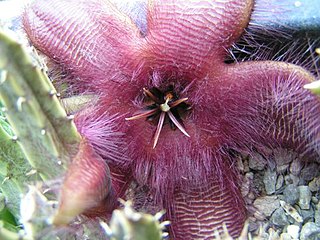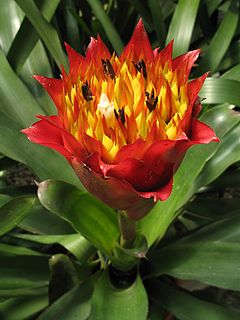 W
WThis glossary of philosophy is a list of definitions of terms and concepts relevant to philosophy and related disciplines, including logic, ethics, and theology.
 W
WSince the first printing of Carl Linnaeus's Species Plantarum in 1753, plants have been assigned one epithet or name for their species and one name for their genus, a grouping of related species. These scientific names have been catalogued in a variety of works, including Stearn's Dictionary of Plant Names for Gardeners. William Stearn (1911–2001) was one of the pre-eminent British botanists of the 20th century: a Librarian of the Royal Horticultural Society, a president of the Linnean Society and the original drafter of the International Code of Nomenclature for Cultivated Plants.
 W
WSince the first printing of Carl Linnaeus's Species Plantarum in 1753, plants have been assigned one epithet or name for their species and one name for their genus, a grouping of related species. These scientific names have been catalogued in a variety of works, including Stearn's Dictionary of Plant Names for Gardeners. William Stearn (1911–2001) was one of the pre-eminent British botanists of the 20th century: a Librarian of the Royal Horticultural Society, a president of the Linnean Society and the original drafter of the International Code of Nomenclature for Cultivated Plants.
 W
WSince the first printing of Carl Linnaeus's Species Plantarum in 1753, plants have been assigned one epithet or name for their species and one name for their genus, a grouping of related species. Plant genera (genuses) are themselves grouped into families; all the plants in one family are more closely related to each other than to plants in any other family.
 W
WSince the first printing of Carl Linnaeus's Species Plantarum in 1753, plants have been assigned one epithet or name for their species and one name for their genus, a grouping of related species. Thousands of plant genera (genuses) have been named for people, including botanists and their colleagues, plant collectors, horticulturists, explorers, rulers, politicians, clerics, doctors, philosophers and scientists. Even before Linnaeus, botanists such as Joseph Pitton de Tournefort, Charles Plumier and Pier Antonio Micheli were naming plants for people, sometimes in gratitude for the financial support of their patrons.
 W
WSince the first printing of Carl Linnaeus's Species Plantarum in 1753, plants have been assigned one epithet or name for their species and one name for their genus, a grouping of related species. Thousands of plant genera (genuses) have been named for people, including botanists and their colleagues, plant collectors, horticulturists, explorers, rulers, politicians, clerics, doctors, philosophers and scientists. Even before Linnaeus, botanists such as Joseph Pitton de Tournefort, Charles Plumier and Pier Antonio Micheli were naming plants for people, sometimes in gratitude for the financial support of their patrons.
 W
WSince the first printing of Carl Linnaeus's Species Plantarum in 1753, plants have been assigned one epithet or name for their species and one name for their genus, a grouping of related species. Thousands of plant genera (genuses) have been named for people, including botanists and their colleagues, plant collectors, horticulturists, explorers, rulers, politicians, clerics, doctors, philosophers and scientists. Other naturalists have also been honored, including agronomists, apothecaries, geographers, geologists, meteorologists, mycologists, pharmacologists and zoologists. Even before Linnaeus, botanists such as Joseph Pitton de Tournefort, Charles Plumier and Pier Antonio Micheli were naming plants for people, sometimes in gratitude for the financial support of their patrons.
 W
WSince the first printing of Carl Linnaeus's Species Plantarum in 1753, plants have been assigned one epithet or name for their species and one name for their genus, a grouping of related species. Many of these genera (genuses) are listed in Stearn's Dictionary of Plant Names for Gardeners. William Stearn (1911–2001) was one of the pre-eminent British botanists of the 20th century: a Librarian of the Royal Horticultural Society, a president of the Linnean Society and the original drafter of the International Code of Nomenclature for Cultivated Plants.
 W
WSince the first printing of Carl Linnaeus's Species Plantarum in 1753, plants have been assigned one epithet or name for their species and one name for their genus, a grouping of related species. Many of these genera (genuses) are listed in Stearn's Dictionary of Plant Names for Gardeners. William Stearn (1911–2001) was one of the pre-eminent British botanists of the 20th century: a Librarian of the Royal Horticultural Society, a president of the Linnean Society and the original drafter of the International Code of Nomenclature for Cultivated Plants.
 W
WSince the first printing of Carl Linnaeus's Species Plantarum in 1753, plants have been assigned one epithet or name for their species and one name for their genus, a grouping of related species. Many of these genera (genuses) are listed in Stearn's Dictionary of Plant Names for Gardeners. William Stearn (1911–2001) was one of the pre-eminent British botanists of the 20th century: a Librarian of the Royal Horticultural Society, a president of the Linnean Society and the original drafter of the International Code of Nomenclature for Cultivated Plants.
 W
WSince the first printing of Carl Linnaeus's Species Plantarum in 1753, plants have been assigned one epithet or name for their species and one name for their genus, a grouping of related species. Many of these genera (genuses) are listed in Stearn's Dictionary of Plant Names for Gardeners. William Stearn (1911–2001) was one of the pre-eminent British botanists of the 20th century: a Librarian of the Royal Horticultural Society, a president of the Linnean Society and the original drafter of the International Code of Nomenclature for Cultivated Plants.